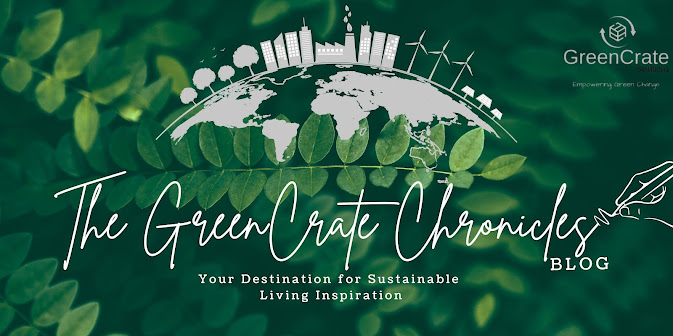The Plastic Plague: Understanding Types, Uses and Recycling
Plastic has become an integral part of our modern lives, with its versatility and durability making it a popular choice for a wide range of applications. However, the widespread use of plastic has also led to a significant environmental crisis; with plastic pollution accumulating in our oceans, waterways and landfills at an alarming rate. In this comprehensive article, we will explore the different types of plastic, their uses, environmental impact and the importance of recycling to protect our planet and its resources.
Types of Plastic and Their Uses
Plastic is a broad term that encompasses a variety of synthetic or semi-synthetic materials made from organic polymers. These materials can be molded into various shapes and forms, making them suitable for numerous applications. Here are some of the most common types of plastic and their uses:
- Polyethylene Terephthalate (PETE or PET): Used in water bottles, soft drink bottles and food containers.
- High-Density Polyethylene (HDPE): Used in milk jugs, shampoo bottles and household cleaners.
- Polyvinyl Chloride (PVC): Used in pipes, wire and cable coatings and packaging materials.
- Low-Density Polyethylene (LDPE): Used in plastic bags, shrink wrap and squeezable bottles.
- Polypropylene (PP): Used in yogurt containers, bottle caps and automotive parts.
- Polystyrene (PS): Used in disposable plates, cups, and foam packaging.
- Other plastics (O): Includes plastics that don't fit into the above categories, such as acrylic, nylon and polycarbonate.
The Environmental Impact of Plastic
While plastic has many benefits and is widely used in various industries, its impact on the environment is severe and far-reaching. Here are some of the key environmental issues associated with plastic:- Plastic pollution: Plastic waste accumulates in oceans, rivers and landfills; harming wildlife and ecosystems.
- Microplastics: Small plastic particles that are ingested by marine life and can enter the food chain.
- Greenhouse gas emissions: The production and disposal of plastic contribute to greenhouse gas emissions; exacerbating climate change.
- Resource depletion: The production of plastic relies on non-renewable fossil fuels; contributing to resource depletion.
- Harm to wildlife: Animals can become entangled in plastic waste or mistake it for food; leading to injury or death.
Recycling Plastic: What's Possible and What's Not
Recycling is a crucial step in reducing the environmental impact of plastic waste. However, not all types of plastic are equally recyclable. Here's a breakdown of which plastics can be recycled and which cannot:Recyclable Plastics
- PETE (PET): Widely recycled and used in new products.
- HDPE: Easily recycled and used in products like plastic lumber and trash cans.
- PP: Increasingly recycled and used in products like automotive parts and outdoor furniture.
- LDPE: Can be recycled, but the process is more challenging than for PETE and HDPE.
Non-Recyclable Plastics
- PVC: Difficult to recycle and often ends up in landfills or incinerators.
- PS: Challenging to recycle due to its low density and high contamination levels.
- Other plastics (O): A diverse category that includes many types of plastic that are difficult or impossible to recycle.
The Importance of Recycling for the Environment and Resources
Recycling plastic is crucial for protecting the environment and conserving natural resources. Here are some of the key benefits of recycling plastic:- Reducing plastic pollution: Recycling helps to divert plastic waste from oceans, rivers and landfills; reducing its impact on wildlife and ecosystems.
- Conserving natural resources: Recycling plastic reduces the need for virgin plastic production; which relies on non-renewable fossil fuels.
- Saving energy: Producing plastic from recycled materials requires less energy than producing it from raw materials.
- Reducing greenhouse gas emissions: Recycling plastic helps to reduce the greenhouse gas emissions associated with plastic production and disposal.
- Creating jobs and economic opportunities: The recycling industry provides employment and generates revenue; particularly in developing countries where informal waste collection and recycling are common.
Inspiring Change: Raising Awareness and Supporting Recycling Efforts
To address the plastic pollution crisis, it's essential to raise awareness and support recycling efforts at all levels of society. Here are some ways to get involved:- Educate yourself and others: Learn about the different types of plastic, their environmental impact and the importance of recycling. Share this knowledge with friends, family and community members.
- Reduce plastic consumption: Adopt a lifestyle that minimizes plastic use by choosing reusable alternatives, avoiding single-use plastics and supporting businesses that prioritize sustainability.
- Recycle properly: Familiarize yourself with your local recycling guidelines and make an effort to recycle as much as possible. Encourage your community to improve recycling infrastructure and access.
- Support policies and initiatives: Advocate for policies that promote sustainable plastic production, improve waste management systems and support recycling efforts. Participate in community clean-ups and support organizations working to address plastic pollution.
- Empower the impoverished: Many of the world's poorest communities are disproportionately affected by plastic pollution and lack access to proper waste management services. Support initiatives that provide employment and economic opportunities in the recycling sector, particularly in developing countries.

.png)




.png)
%20(1).png)
Comments
Post a Comment